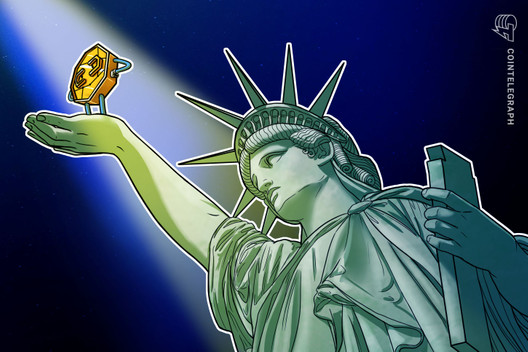Robinhood and GameStop proved we need a new financial system
King Midas is most famously remembered through the fable we tell our kids that the king could turn everything he touched into gold. At first, it was a great idea that his greed turned even food into gold, leaving him wealthy but unable to live.
Robinhood’s CEO and its board had the impossible King Midas dilemma this week: deciding whether to side with their customers and let them make over $15 billion in profits or halting trading and allow only the sale of GameStop (GME) to enable the money-hungry shorts to cover their position at lower prices and avoid massive losses. Robinhood showed everyone that its favorite color is money, and its friends are the same people who make sure you almost never win trading on Wall Street.
Related: GameStop saga reveals legacy finance is rigged, and DeFi is the answer
Greed will win again and again
As it usually does on Wall Street, greed triumphed. It was not only Robinhood, Interactive Brokers, Ameritrade, Charles Schwab, and Citadel and Point 72 but all centralized finances sided with the shorts.
Robinhood launched a platform and an app that represented the people and that was always going to act in the users’ best interests. Still, the golden rule of startups applies: If you don’t pay for the product, you are the product. The company’s real plan was to collect enough order flow and assets to charge large market makers hundreds of millions of dollars in fees related to securities lending and order flow. The professionals on Wall Street call retail investors “plankton,” as it is what hedge funds and institutions feed upon to deliver obscene profits and bonuses to their employees and shareholders.
How is it possible in 2021 to have 136% of stock sell short? Who allows such things to exist and why isn’t anyone being held responsible? While everyone is focused on enabling the Reddit mob to buy GME, no one is looking into the root cause of the GME problem: the collusion of brokers and hedge funds to use naked shorting to destroy companies for pure profit.
When the GameStop short squeeze took place, we found out who Robinhood’s largest customer really was: Citadel & Point72 (two of the most storied hedge fund managers on Wall Street), which pays Robinhood over $300 million in fees yearly for the order flow and securities lending. It’s hard to believe Robinhood has its community’s back when it’s always looking over its own shoulder.
Related: r/Wallstreetbets vs. Wall Street: A prelude to DeFi bursting onto the scene?
Crypto is the shining city over the hedge
Creating unobstructed access to basic financial services has the potential to unleash the genius and sleeping talent in our society. IQ is distributed equally across the planet, but access and opportunity are not. Often, access depends on status and wealth, which means beating the system is impossible. What is possible? We need to take advantage of this moment, when the traditional financial institutions are exposed, to introduce the waves of innovation that have been occurring on blockchain technologies.
From naked short positions to lying about how much annual percentage yield you really should be making from holding your assets with these institutions, it is time to introduce real, impactful financial freedom through financial tools and methods that act in the best interest of the users and not the abusers at the very top.
There is a reason why some of the most intelligent, innovative and community-focused leaders are adding Bitcoin (BTC) and Ether (ETH) to their wallets and adding them to their Twitter profiles today. In protest of what we have witnessed this week — because no matter how hard they try — hedge funds, fat cats and tech bros cannot turn Bitcoin into dollars reserved only for their own pockets because the decentralized community is bigger than they are.
This article does not contain investment advice or recommendations. Every investment and trading move involves risk, and readers should conduct their own research when making a decision.
The views, thoughts and opinions expressed here are the author’s alone and do not necessarily reflect or represent the views and opinions of Cointelegraph.
Alex Mashinsky is one of the inventors of Voice Over Internet Protocol with a foundational patent dating back to 1994 and is now working on Money Over Internet Protocol technology. Over 35 patents have been issued to Alex relating to exchanges, VOIP protocols, messaging and communication. As a serial entrepreneur and founder of seven New York City-based startups, Alex has raised more than $1 billion and exited over $3 billion. Alex is the CEO and founder of The Celsius Network, a crypto lending platform founded in 2017 that provides members with curated services unavailable through traditional institutions.








